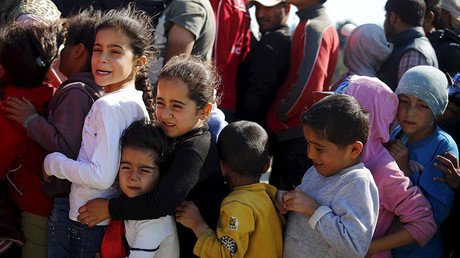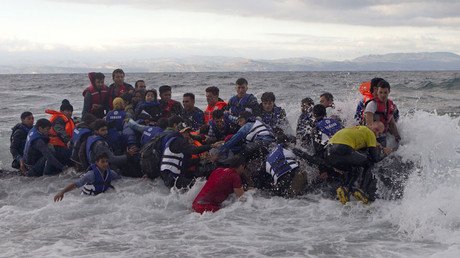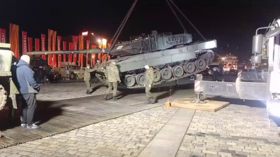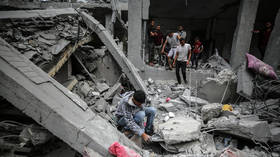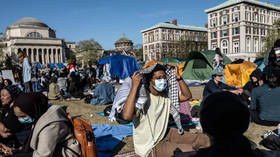65 million people displaced worldwide, breaking all records – UNHCR
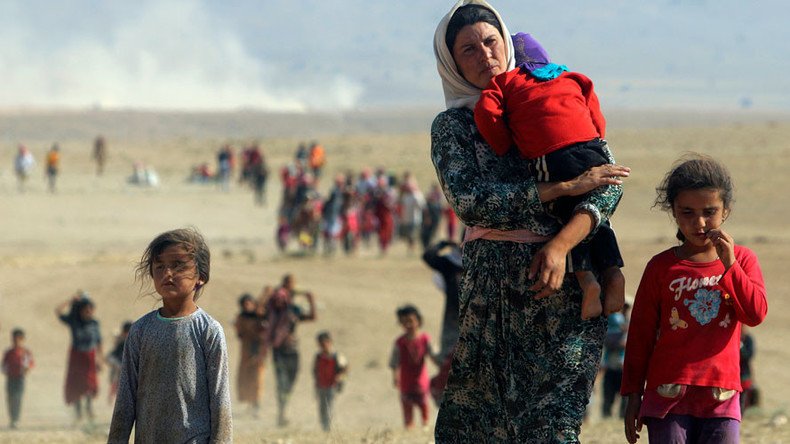
The UN has released alarming displacement statistics claiming 65 million people are now displaced worldwide. Syria and Afghanistan have raised the bar to set the new world record. And progress in the work being done is slow, the agency head says.
According to UNHCR the current figure stands at 65.3 million, up from 2014’s record of 60 million displaced since World War II. The refugee influx into Europe last year has contributed by 10 percent, the agency said on Monday.
“An unprecedented 65.3 million people around the world have been forced from home. Among them are nearly 21.3 million refugees, over half of whom are under the age of 18,” UNHCR writes in remarks to its Global Trends report for 2015.
The figure also jumped by 50 percent in the last five years, meaning that one in every 113 people on Earth is now a refugee, an IDP or an asylum-seeker.
"The refugees and migrants crossing the Mediterranean and arriving on the shores of Europe, the message that they have carried is that if you don't solve problems, problems will come to you," the UN High Commissioner for Refugees Filippo Grandi said at a news briefing.
"It's painful that it has taken so long for people in the rich countries to understand that," he continued. "We need action, political action to stop conflicts, that would be the most important prevention of refugee flows."
On average, 24 people were being displaced any given minute in 2015, amounting to 34,000 people per day. In 2005 that figure was only six per minute. And the number has doubled since 1997. The Syria war raised that by another 50 percent alone when it started in 2011.
Put together, the fighting in Syria, Afghanistan, Burundi and South Sudan have led to displacements amounting to 21.3 million people, half of them children, according to the agency. More than half of the displaced come from three countries – Syria, Afghanistan and Somalia.
In wealthier industrialized nations, a record two million asylum claims were filed in 2015, the report says. Nearly 100,000 stood for unaccompanied children. That is not only three times the number since 2014, it’s also the global record. Of those northern nations, Germany continued to lead with 441,900 claims, followed by the United States, with 172,700 claims – mostly from southern neighbors, where people fled from gang and drug-related violence.
The High Commissioner is also worried that the huge influx precipitated a rise in xenophobia, something he calls “a very defining featured of the environment in which we work.
"Barriers are rising everywhere - and I'm not just talking of walls. But I'm talking about legislative barriers that are coming up, including in countries in the industrialized world that have been for a long time bastions of principle in defending the fundamental rights linked to asylum."
Commenting on the refugee deal between the EU and Turkey, Grandi has criticised the mentality of believing the problem is solved once the European flow is halted.
"The fact that that flow has stopped does not mean the problem of displacement has ended. It may have ended for some countries that don't have to deal with it anymore, for now," he said.
Furthermore, work isn’t being done fast enough: the plan for some EU members to take in 160,000 asylum seekers from Greece and Italy is not being implemented swiftly enough. To date, only 2,406 of those have been relocated.
"There is no Plan B for Europe. Europe will continue to receive people seeking asylum,” Grandi added. "Everybody has to share responsibility now.”
